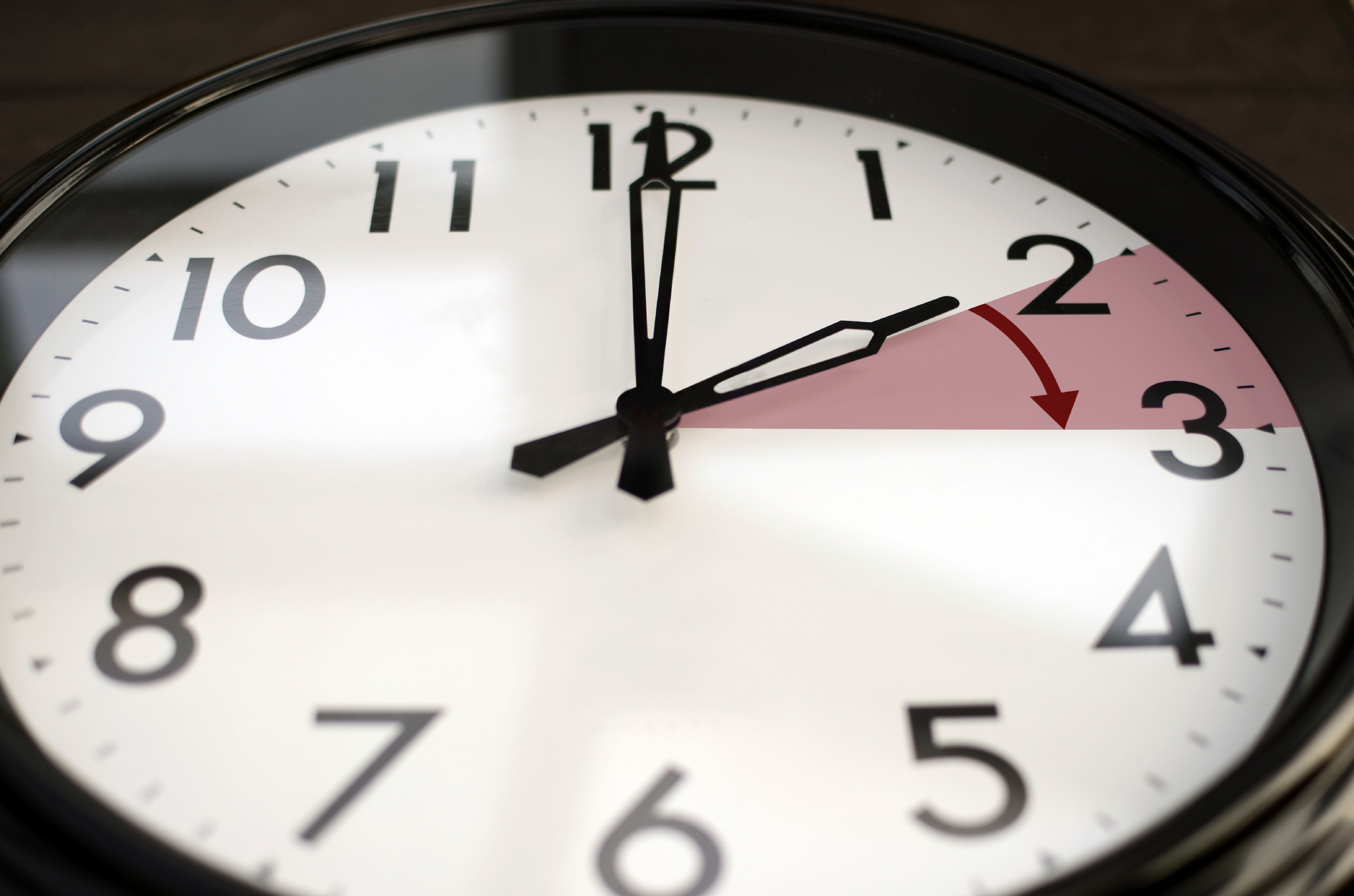This Sunday, March 13 at 2 a.m., remember to ‘spring ahead’ into daylight saving time by adjusting your clock one hour forward.
The good news is we will gain more sunlight each day, the bad news is that we will lose an hour of potential precious sleep.
“Each spring is a tough change in daylight saving timing,” says Dr. Daniel McNally, medical director of the Sleep Disorders Center at UConn Health and chief of the Division of Pulmonary and Critical Care Medicine. “You’re going to lose an hour of sleep, and you’re going to be getting up an hour earlier as far as your body’s internal clock is concerned. It’s hard.”
According to McNally, many of us tend to want to go to bed later and get up later. This tendency is driven mostly by our increased exposure to artificial light in the evening hours from technology such as television and smart phones.
“We didn’t have so much evening light exposure in ancient times,” he says. “As soon as it was dark, people went to bed. So this weekend, you will have to try to limit your exposure to evening light from technology and resist the tendency to stay up late, plus lose an hour of sleep.
“For a lot of people,” he adds, “losing an hour of sleep this weekend will have little effect, but for some it could be very profound.”
To cope with the loss of an hour of sleep this weekend, McNally stresses preparation.
“The secret here is to anticipate the time change in advance,” he says. “This is the week to be good to yourself, and to be good about your sleep habits. Allow yourself a bit more sleep, so that you are ready going into the weekend.”
Preparation tips for daylight saving time, which begins on March 13:
- Get enough sleep on Friday night;
- Get up on time on Saturday morning, or even better, at least a half-hour early;
- Turn your clock forward an hour before going to bed Saturday night;
- Get to sleep at a good hour on Saturday night;
- Don’t make this the weekend to sleep in late or to go to bed late;
- Get up Sunday on time, with the time already changed on the clock, which will make getting up on Monday easier.
After you adjust to daylight saving time, McNally offers these sleep hygiene recommendations for pursuing a better night’s rest:
- Make getting the sleep time you need at night a priority. Don’t nap or lounge in bed during the day.
- Make sure you catch some sunlight in the morning and exercise daily, but don’t exercise too close to bedtime.
- Don’t eat food late at night.
- Avoid caffeine and alcohol, especially in the evening.
- Be consistent by going to bed each night at the same time, and plan to rise at the same time each morning. But remember to face the alarm clock away from your bed, so you don’t watch the clock during the night.
- Ensure that your bed, mattress, and pillows are comfortable.
- Make sure your bedroom is quiet, dark, and a comfortable temperature, not too cold or warm.
- Keep your bedroom just for sleeping, not for eating, television, Internet, mobile phone, smart tablet, or computer use.
- If you can’t fall asleep after 20 minutes in bed, try leaving the bedroom until you feel sleepy and then return to bed.
- Don’t use the snooze button on your alarm clock. Set the alarm for when you want to get up, and then actually get up.
McNally and his team specialize in the science of sleep, and evaluating and caring for patients who may be experiencing a sleep issue, ranging from loud snoring to insomnia or the inability to sleep.
To learn more about UConn Health’s Sleep Disorders Center, visit here or call: 860-679-4090.



